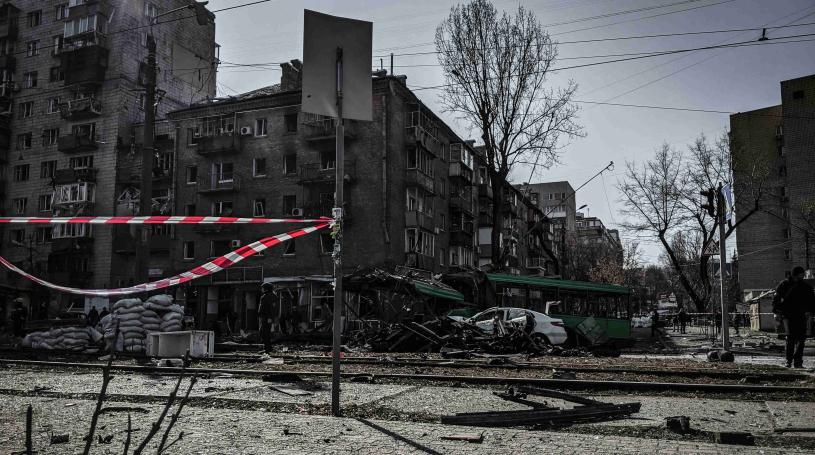South African daily murder figure eclipses Ukraine civilian death toll – top academic
South Africa’s daily murder toll is nearly double the number of daily civilian deaths in Ukraine.
This grim statistic forms part of a sobering crime assessment by prominent academic Professor Eugene Cloete, chief executive of the Cape Higher Education Consortium.
In the fourth quarter of the 2024/25 fiscal year, South Africa registered an average 64 murders a day (according to SAPS figures), a significantly higher toll than the daily average 38 civilian deaths recorded during the same period in the Ukraine.
“This means that on any given day, more people are murdered in South Africa than are killed in the Ukrainian conflict,” Cloete says in his article. "This is a reality that demands a deeper understanding of the forces tearing at the fabric of South African society,” Cloete says.
“While the world’s attention is often fixed on conventional wars, the daily reality for many South Africans is a silent, undeclared war—a war the nation seems to be waging against itself.
Cloete stressed that the Ukraine deaths he refers to are limited to civilian deaths, and do not include military casualties in the current armed conflict with Russia.
“It basically means, to be a civilian in the Ukraine, a country at war with Russia, the death toll is half of that in South Africa where we are not at war with any other country,” Cloete told Cape Chamber.
Taken as a percentage of population, the civilian violent death rate in the two countries during that period is nearly identical, based on an estimated Ukraine population of 35 million a South African population of 63 million.
Cloete said South Africa’s daily toll of 64 was a decrease – it had been as high as 72.
“It is a statistic that has led many, including the civil rights organisation Action Society, to declare that South Africa’s murder rate surpasses that of some war zones. This is not a new phenomenon. For years, analysts and commentators have pointed to the country’s staggering crime rates as evidence of a society in a state of perpetual conflict.”
The geographic of South Africa’s murder ‘hotspots’ points to underlying social and economic inequalities as the key drivers of violent crime, Cloete says, adding that the inequalities have not been adequately addressed. “In fact, in many ways, they have become even more entrenched.”
Cloete goes on to warn against inflammatory political rhetoric in a deeply fractured society already awash with conflict. Xenophobia is one such obvious example of how rhetoric can be weaponised, he says.
Another notable example is Julius Malema’s now infamous ‘Kill the Farmer, Kill the Boer’ chant that recently received international attention. “The weaponization of political rhetoric is not just a matter of political debate; it is a matter of life and death.
In a country that is already grappling with the world's highest murder rate, inflammatory rhetoric is a clear and present danger that threatens to further destabilize the country and to plunge it into a deeper cycle of violence,” Cloete says.
Cloete believes South Africa’s grim crime statistics, even when compared with active war zones, illustrate the obvious need to address not only law enforcement but the broader society’s underlying fault lines.

